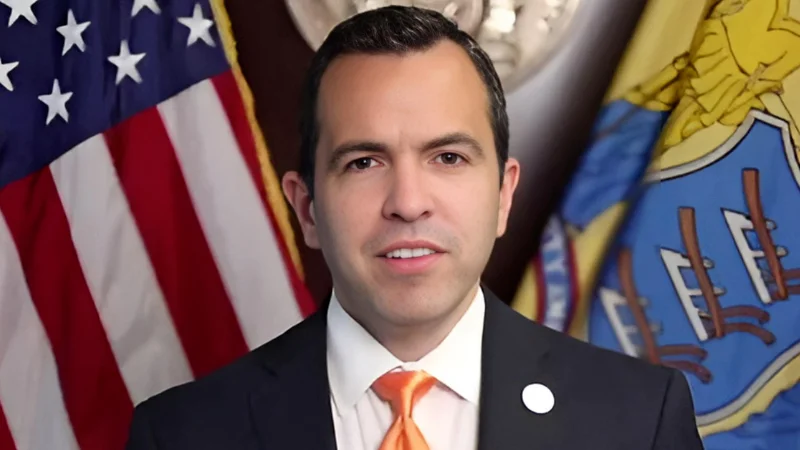
Attorney General Matthew J. Platkin and Department of Environmental Protection Commissioner Shawn M. LaTourette have announced a settlement valued at more than $2 billion with DuPont and related companies. The agreement addresses long-standing contamination from PFAS, known as “forever chemicals,” and other pollutants at four industrial sites in New Jersey. This is the largest environmental settlement reached by a single state.
PFAS are synthetic chemicals used in many products since the 1940s. They do not break down over time and accumulate in the environment and people’s bodies. Studies have linked them to various cancers and health issues, including autoimmune and endocrine disorders, as well as developmental problems in fetuses and infants.
“When I became Attorney General in 2022, I pledged to fight corporate polluters who, for decades, have knowingly contaminated our land and water with PFAS and other dangerous chemicals,” said Attorney General Platkin. “PFAS are particularly insidious. These dangerous chemicals build up and accumulate everywhere, and New Jersey has some of the highest levels of PFAS in the country. It is why I have worked so diligently alongside Commissioner LaTourette on this issue, and I am pleased that the companies agreed to a settlement rather than continue with the trial.”
“Polluters who place profit above public well-being by releasing poisonous PFAS and other contamination in our State can expect to be held responsible to clean up their mess and fully compensate the State and its citizens for the precious natural resources they’ve damaged or destroyed,” said Commissioner LaTourette. “This landmark settlement will advance New Jersey’s nation-leading PFAS abatement efforts, improve drinking water quality, and restore injured natural resources. This resolution embodies the steadfast commitment of the Department of Environmental Protection and our Attorney General to hold all PFAS polluters to account, and to protect public health, safety, and the environment from these harmful chemicals.”
The proposed settlement resolves a 2019 lawsuit against E.I. DuPont de Nemours (now EIDP, Inc.) regarding its Chambers Works site after a month-long trial in federal court. It also settles three other lawsuits involving additional sites across New Jersey, claims related to aqueous film-forming foam (AFFF), and DuPont’s responsibilities under a statewide directive on PFAS.
Other companies involved include The Chemours Company (and its subsidiaries), DuPont Specialty Products USA LLC, Corteva Inc., DuPont de Nemours Inc., along with 3M which settled earlier this year before trial proceedings began.
As part of the agreement, DuPont entities will clean up contamination at Pompton Lakes Works (Passaic County), Parlin site (Middlesex County), Repauno site (Gloucester County), and Chambers Works (Salem County). They will pay $875 million for natural resource damages—including funding for abatement projects such as drinking water treatment—and create remediation funding sources totaling up to $1.2 billion with an additional $475 million reserve fund to protect taxpayers if any company defaults.
Since 2019, New Jersey has recovered nearly $3 billion through lawsuits addressing PFAS pollution statewide. These recoveries support both public agencies and private well owners facing costs related to contaminated drinking water.
Manufacturing activities at these sites date back over a century. Operations included explosives manufacturing at Pompton Lakes Works; chemical production at Parlin; explosives research at Repauno; gunpowder manufacturing followed by dye/chemical production—including PFAS use—at Chambers Works. Hazardous waste disposal practices led to widespread pollution affecting soil, groundwater, rivers, wetlands, wildlife habitats, and nearby communities.
New Jersey was among the first states nationally to set enforceable standards for certain PFAS compounds in drinking water—a move that positioned it as a leader in regulating these substances statewide.
The settlement will be published for public comment before final approval by U.S. District Court.
The case was handled by special counsel within New Jersey’s Division of Law Environmental Enforcement Section.